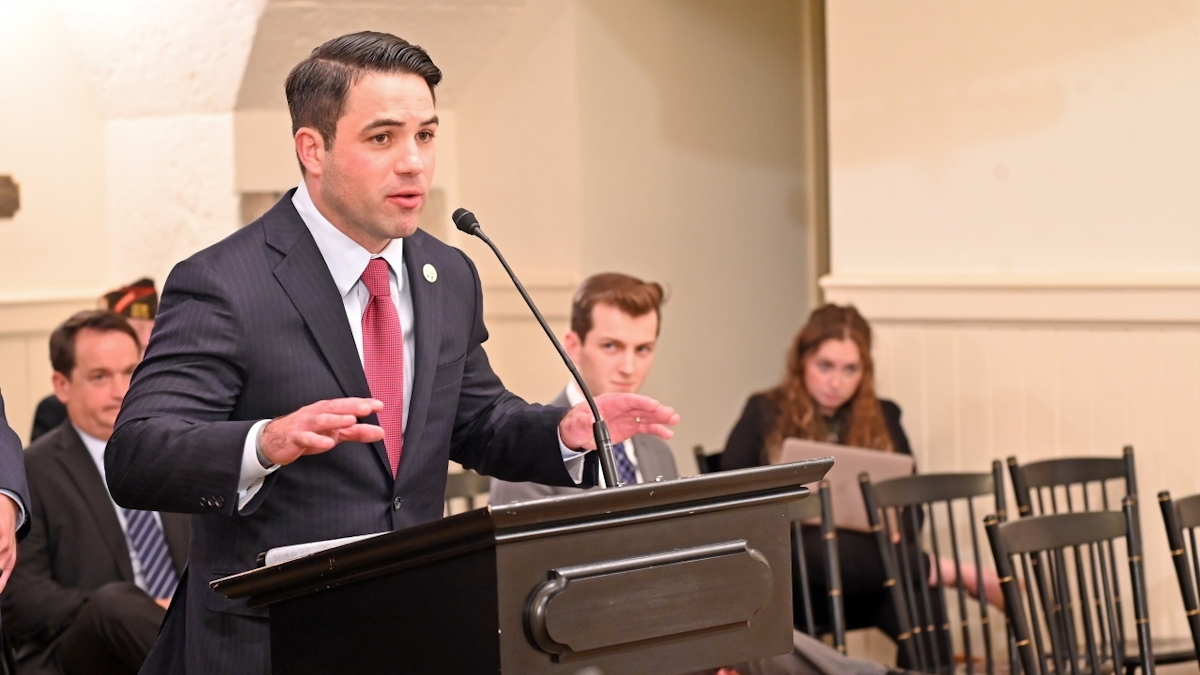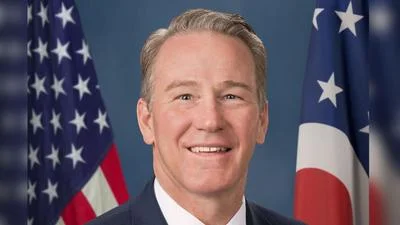Ohio State Rep. Steve Demetriou (R-Bainbridge Twp.) | Ohiohouse.gov
Ohio State Rep. Steve Demetriou (R-Bainbridge Twp.) | Ohiohouse.gov
On July 19, Rep. Steve Demetriou (R-Bainbridge Twp.) alleged that opponents to Issue 1 have been misleading voters in their framing of Issue 1. According to Demetriou, these special interests are looking to defeat the measure, which would raise the threshold needed to pass a ballot driven amendment to Ohio's Constitution.
"Opponents to Issue 1 have been telling the people of Ohio a series of lies and half truths because the truth only makes our case for us," Demetriou said. "From misleadingly framing the rural signature requirements to attempting to scare voters over supposed threats to democracy, these special interests continue to bend the truth to suit their political goals because they know Issue 1 will help protect the constitution from just these sorts of groups and their underhanded tactics."
As previously reported by the Buckeye Reporter, Issue 1, which will appear on the August 8 ballot, would raise the threshold to pass a ballot driven Constitutional amendment from 50%+1 to 60%.
Additionally, the proposal, if passed, would also require proposed ballot initiatives to receive signatures from all 88 of Ohio's counties to be eligible for placement on the ballot. State Rep. Marilyn John (R-Richland County) argued that the requirement for signatures from all of Ohio's counties, including the rural counties, would help to protect Ohio's Constitution from undue influence from special interests.
According to a report in the Ohio Capital Journal, a spokesman for the ACLU of Ohio argued that the "switch from 44 to 88 counties guarantees that the only campaigns that will qualify for the ballot are the most extremely rich ones.”
The Ohio Farm Bureau, however, supports Issue 1 and the rural signature requirement. They argue that rural communities are "often ignored" under the current system which only requires signatures from half of Ohio's counties. A statement on their website argues that "[a]mending the constitution should require broad support from Ohioans in all types of communities. Under our current process, the interests of large metropolitan areas outweigh those of small and rural communities."
In addition to its opposition to Issue 1 on the grounds of the rural signature requirement, ACLU of Ohio also frames Issue 1 as being undemocratic. “The proposed changes to our constitution in Issue 1 are exclusively targeted at making sure a majority of Ohioans – 50% +1 - is an insufficient voting block to amend our foundational document," reads a statement on their website.
A report on TownHall.com, however, points out that the ACLU has a higher threshold, a two-thirds majority, to amend their own organizational bylaws.
In addition to the ACLU, "a roster of left-leaning advocacy groups" have come out against Issue 1 according to a prior report from the Buckeye Reporter. These groups include Black Lives Matter Cleveland, Black Lives Matter Dayton, Pro-Choice Ohio, Black Out and Proud, the Cleveland Bi+ Network, Columbus New Liberals, Democrat Socialists of America-Cleveland, Ensuring Parole for Incarcerated Citizens, New Voices for Reproductive Justice and the Ohio Federation of Teachers. This month, the Ohio Communist Party and Ohio Citizen action both enlisted drag queens to help support the Vote No campaign.
According to a report from the Ohio Capital Journal, the One Person One Vote campaign released a TV ad which states that Issue 1, if passed, would be permanent and would hand "corrupt politicians and special interests more control."
Proponents of Issue 1, however, argue the opposite would be true. “California is not unique, as Ohio has had its share of greedy out of state interests seek to permanently inscribe their own sweetheart deal into our constitution," Ohio State Senate Majority Leader Rob McColley (R-Napoleon) previously told the Buckeye Reporter. "From the casino amendment in 2009 to the failed recreational marijuana amendment in 2015, wealthy out of state business interests have showed there is no limit to their greed and that they would spend whatever amount necessary to clear Ohio’s uncommonly low threshold for constitutional amendments.”
A November 2022 news release from Ohio's Secretary of State Frank LaRose stated that of the prior three petition-based constitutional amendment campaigns, "special interests have spent more than $50 million on media advertising, political consultants, and more to support their passage, failing on two of them."






 Alerts Sign-up
Alerts Sign-up